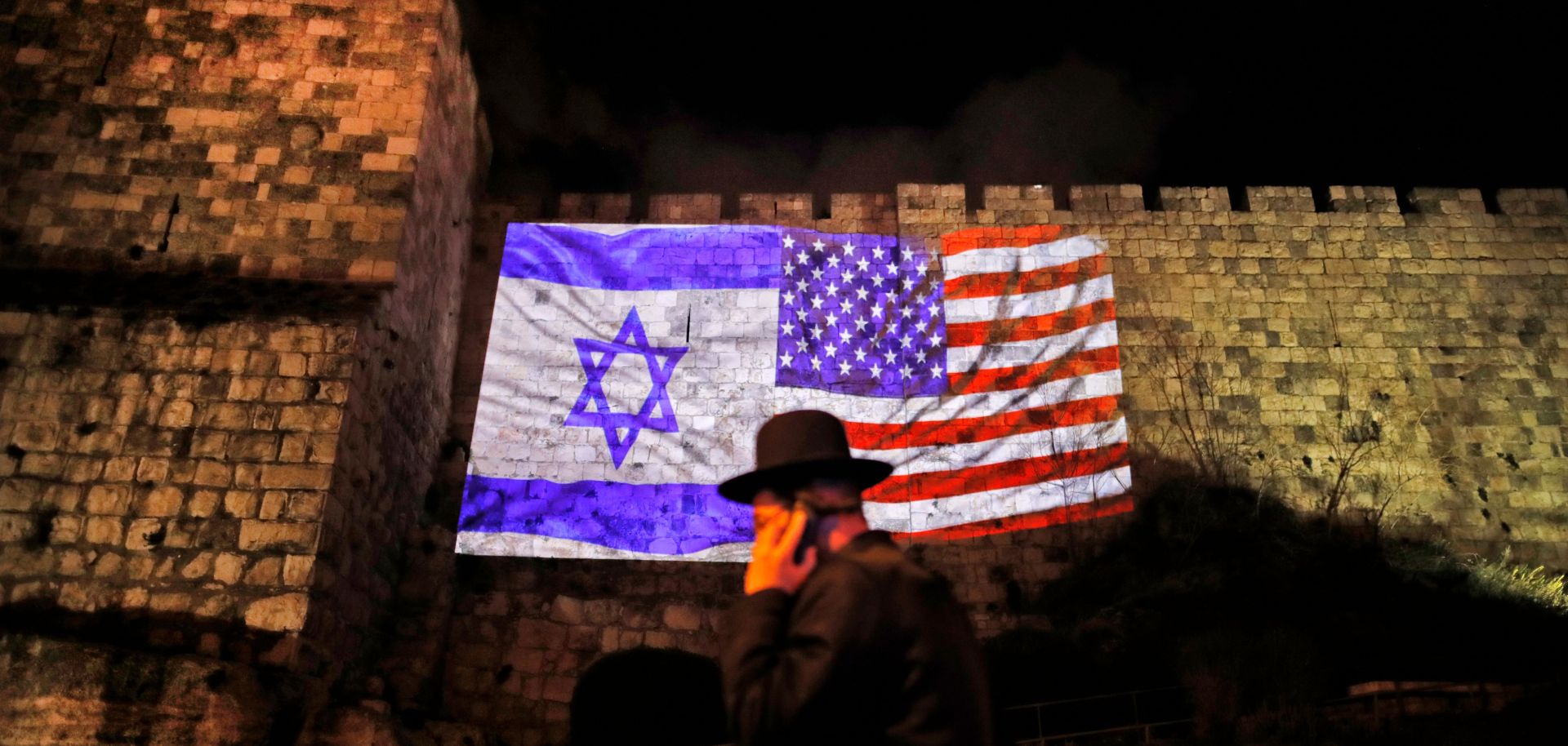ASSESSMENTS
Jerusalem: A Decision of Regional Consequence
Dec 8, 2017 | 00:12 GMT

A picture taken on December 6, 2017, shows a giant U.S. flag screened alongside Israel's national flag by the Jerusalem municipality on the walls of the old city. U.S. President Donald Trump recognized the disputed city of Jerusalem as Israel's capital on December 6, 2017, and kicked off the process of relocating the U.S. Embassy there from Tel Aviv.
(AHMAD GHARABLI/AFP/Getty Images)
Highlights
- Washington's decision to recognize Jerusalem as the capital of Israel will give jihadist groups a rallying cry to galvanize supporters and recruit new members.
- By dimming the prospects for a two-state solution, the move will push Israelis and Palestinians alike toward a one-state model, however reluctantly.
- Though the change in Jerusalem's status will present a challenge for most countries in the region, Iran and Turkey could turn it to their advantage.
Subscribe Now
SubscribeAlready have an account?
